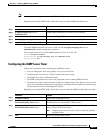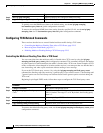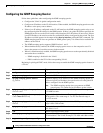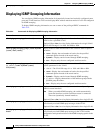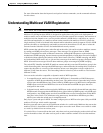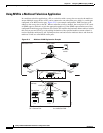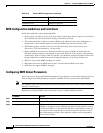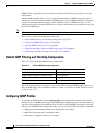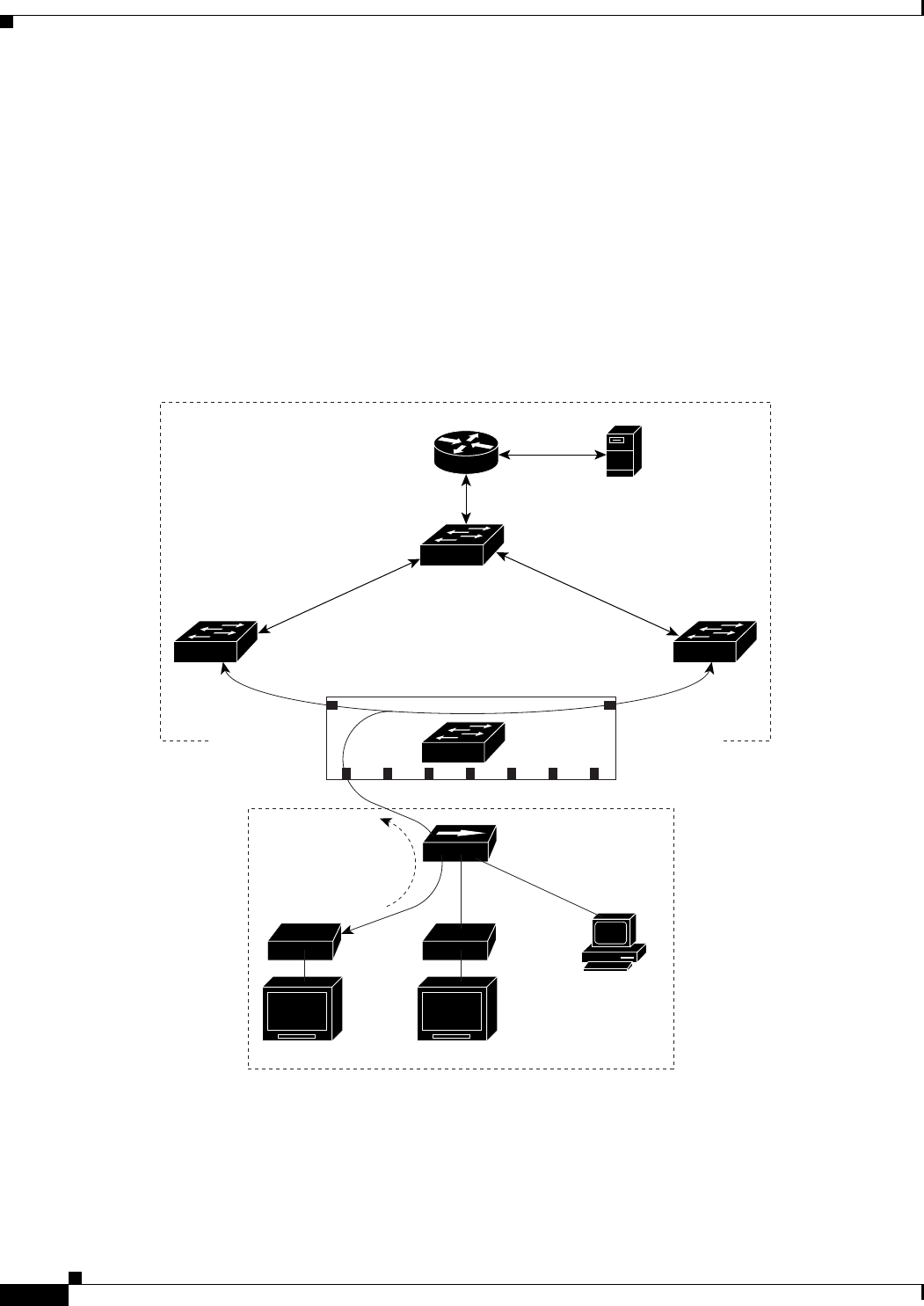
22-18
Catalyst 2960 and 2960-S Switch Software Configuration Guide
OL-8603-09
Chapter 22 Configuring IGMP Snooping and MVR
Understanding Multicast VLAN Registration
Using MVR in a Multicast Television Application
In a multicast television application, a PC or a television with a set-top box can receive the multicast
stream. Multiple set-top boxes or PCs can be connected to one subscriber port, which is a switch port
configured as an MVR receiver port. Figure 22-3 is an example configuration. DHCP assigns an IP
address to the set-top box or the PC. When a subscriber selects a channel, the set-top box or PC sends
an IGMP report to Switch A to join the appropriate multicast. If the IGMP report matches one of the
configured IP multicast group addresses, the switch CPU modifies the hardware address table to include
this receiver port and VLAN as a forwarding destination of the specified multicast stream when it is
received from the multicast VLAN. Uplink ports that send and receive multicast data to and from the
multicast VLAN are called MVR source ports.
Figure 22-3 Multicast VLAN Registration Example
SP1
Multicast
data
Multicast
data
Customer
premises
Multicast VLAN
SP
SP
RP = Receiver Port
SP = Source Port
Note: All source ports belong to
the multicast VLAN.
Hub
TV
data
Set-top boxSet-top box
TV TV
PC
SP
SP
SP
SP
IGMP join
Cisco router
Multicast
server
Switch B
SP2
RP1 RP2 RP3 RP4 RP5 RP6 RP7
101364
Switch A




